Is Cetearyl Alcohol Bad for Hair?
When you’re browsing through the hair care aisle, it’s easy to feel overwhelmed by the extensive list of ingredients in your favorite shampoos, conditioners, and styling products. One name that appears quite frequently is cetyl alcohol. But in this era of heightened awareness about what we put on our bodies, you might wonder, Is cetyl alcohol bad for hair? Let’s delve into this topic to understand what cetyl alcohol is, what it does, and whether it deserves a place in your hair care routine.
What’s Cetyl Alcohol?
Cetyl alcohol might sound a bit intimidating at first — after all, it has “alcohol” in its name. But before you get concerned, let’s clear up a common misconception: not all alcohols are created equal. Cetyl alcohol is a fatty alcohol derived from natural sources like coconut or palm oil. Unlike the harsh, drying alcohols that can strip moisture from your hair, cetyl alcohol is actually quite the opposite. It’s more of a friend than a foe, acting as a soothing emollient, a stabilizing agent, and a thickener in your hair products.
How is Cetyl Alcohol Used in Hair Products?
Cetyl alcohol pulls double duty in hair care formulations, offering multiple benefits:
- Moisturizing Agent: It helps soften and smooth your hair by locking in moisture, which is a game-changer if you’re dealing with frizz or dryness.
- Thickener: Ever wonder why your conditioner feels so rich? Cetyl alcohol gives it that luxurious, thick texture.
- Stabilizer: It keeps the oil and water in your products from separating, ensuring that your conditioner or styling cream stays perfectly blended.
- Detangler: Makes combing through your hair a breeze, reducing breakage and making styling easier.
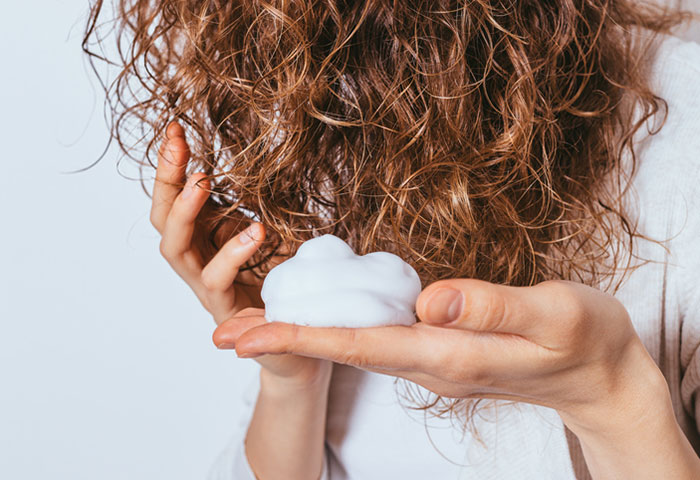
Benefits of Cetyl Alcohol for Hair
- Moisture Retention
If your hair is prone to dryness, cetyl alcohol can be a lifesaver. Its emollient properties create a barrier that helps retain moisture, keeping your hair hydrated and less likely to frizz. - Improved Texture and Shine
Using products with cetyl alcohol can give your hair a softer, smoother texture. It’s like an instant upgrade for dull, coarse hair, adding shine and manageability. - Easier Detangling
Cetyl alcohol reduces friction, making it easier to comb through your hair without pulling out strands or causing damage. This is especially beneficial for those with thick or curly hair. - Versatility
Whether your hair is fine and straight or thick and curly, cetyl alcohol works across the board. It’s found in everything from shampoos and conditioners to hair creams and styling gels.
Are There Downsides to Cetyl Alcohol?
Even though cetyl alcohol has a lot going for it, there are a few things to consider:
- Build-Up
Using products with cetyl alcohol over time might lead to build-up, especially if you have fine hair or use multiple styling products. To avoid this, consider using a clarifying shampoo occasionally to keep your scalp and hair free from residue. - Individual Sensitivities
While it’s rare, some people might have sensitivities to cetyl alcohol. If you notice any irritation, it’s a good idea to do a patch test or consult with a dermatologist before continuing use. - Misconceptions About Alcohol
Not all alcohols are bad for your hair, and cetyl alcohol is one of the good ones. However, some people still lump it in with the drying alcohols, which can cause unnecessary concern.
The Verdict on Cetyl Alcohol
So, is cetyl alcohol bad for hair? The answer is a resounding no. Cetyl alcohol is actually beneficial for most hair types, offering moisture, improved texture, and manageability. However, like with any ingredient, it’s important to pay attention to how your hair responds and adjust your routine accordingly.
Next time you spot cetyl alcohol on an ingredients list, you can feel confident knowing that it’s generally safe and beneficial for your hair. Everyone’s hair is different, though, so it’s all about finding what works best for you.
FAQs
- Is cetearyl alcohol good for your hair?
Yes, cetearyl alcohol, like cetyl alcohol, is a fatty alcohol that helps condition and smooth your hair. It’s generally considered safe and beneficial. - Should I avoid cetearyl alcohol?
No, you don’t need to avoid cetearyl alcohol unless you have a specific sensitivity to it. It’s a common ingredient in hair care products that offers moisturizing benefits. - Which alcohols should I avoid in hair products?
Avoid drying alcohols like ethanol, isopropyl alcohol, and SD alcohol 40, as they can strip your hair of moisture. - Is cetearyl alcohol Curly Girl approved?
Yes, cetearyl alcohol is generally approved for the Curly Girl method, as it helps with moisture retention and doesn’t dry out curls. - Is cetearyl alcohol halal for hair?
Cetearyl alcohol is generally derived from plant sources like coconut or palm oil, making it halal. However, it’s always best to check the product’s source if you’re unsure. - Does alcohol damage hair?
Certain alcohols can damage hair by drying it out, but fatty alcohols like cetearyl and cetyl alcohol are actually good for hair. - What can I use instead of cetearyl alcohol?
If you prefer to avoid cetearyl alcohol, look for products with other emollients like shea butter or jojoba oil. - Is cetearyl alcohol bad for hair extensions?
Cetearyl alcohol is generally safe for hair extensions, as it helps with moisture retention. However, excessive build-up could be an issue, so use products sparingly. - What’s the negative effect of cetyl alcohol?
The main potential negative effect is build-up on the hair over time, which can be managed with regular cleansing. - Which ingredients are bad for hair?
Avoid sulfates, parabens, and drying alcohols like ethanol or isopropyl alcohol, as they can strip your hair of moisture and cause damage. - Which alcohol is best for hair?
Fatty alcohols like cetearyl and cetyl alcohol are best, as they provide moisture and smoothness. - Is cetearyl alcohol drying?
No, cetearyl alcohol isn’t drying; it’s a fatty alcohol that helps retain moisture in the hair. - Is cetearyl alcohol bad for low porosity hair?
Cetearyl alcohol can be beneficial for low porosity hair, as it helps to lock in moisture without causing excessive build-up when used appropriately. - How much cetearyl alcohol to use in shampoo?
The amount can vary, but generally, it’s used at a concentration of 2-5% in shampoos. - Is dimethicone bad for hair?
Dimethicone can provide a smooth, shiny finish but can also cause build-up over time. It’s best used sparingly, especially on fine or thin hair.
Understanding your hair’s needs and how ingredients like cetyl alcohol fit into your routine is key to maintaining healthy, beautiful locks. If you have any further questions or concerns, don’t hesitate to reach out for personalized advice!
Check Recent Posts:
- What Does Conditioner Do for Curly Hair?
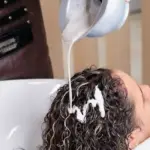
- How to Use Leave-in Conditioner for Curly Hair: A Step-by-Step Guide
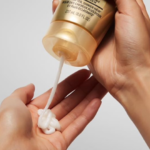
- How to Brush Curly Hair the Right Way? Tips and Techniques

- The Truth About Leaving Conditioner in Your Hair Overnight: Pros, Cons, and Best Practices
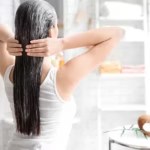
- What Is Textured Hair? Everything You Need To Know
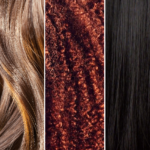
- Understanding Virgin Hair: What It Is and Why It Matters
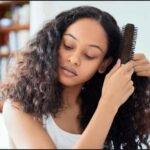
Leave a Reply